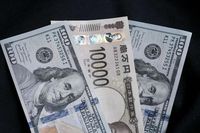In a shocking turn of events, the popular Japanese fast-food chain Sukiya has announced the closure of all its restaurants due to serious contamination issues that have led to a staggering 40% drop in sales. This drastic measure comes after reports surfaced about rodent and cockroach infestations that have plagued several locations, prompting an urgent response from the company.
According to a report from News Post Seven, current employees at Sukiya have voiced their concerns, revealing that the contamination issues have severely impacted the brand's reputation and financial performance. "We never imagined it would get this bad," said one crew member, echoing the sentiments of many who have been affected by the sudden closure.
As the news broke, social media erupted with reactions from concerned customers and industry experts alike. Many are questioning how such a beloved chain could fall into such disarray. Some have even suggested that the situation might have been orchestrated by competitors, raising eyebrows about the motivations behind the contamination claims. "The rumors of a conspiracy are alarming," noted a local food critic, referring to claims that the infestations were deliberately caused to harm Sukiya's business.
In a parallel economic development, the yen has been trading in the latter half of the 149 yen range against the dollar, experiencing a slight decline. Remarks by U.S. Treasury official Bessen regarding potential measures to lower tariffs have been cited as a contributing factor to this sell-off. Kamada Takuya, Chief Investigator at Gaika Dotto Com General Research Institute, explained that the market reacted to the notion of flexible mutual tariffs, indicating that the economic landscape remains volatile.
On April 3, 2025, U.S. President Donald Trump is expected to announce new tariff measures at an event in the White House Rose Garden, which could further influence the yen's value. Tsuyoshi Ueno, Senior Economist at Nissei Basic Research Institute, predicts that even a slight increase in tariffs may not significantly slow down the U.S. economy, despite ongoing inflation concerns. He suggested that as short positions accumulate, the yen may weaken further.
Meanwhile, the financial struggles of a 75-year-old man have also come to light, highlighting the challenges faced by many retirees in Japan. With a pension of just 180,000 yen per month, he has depleted his savings of 20 million yen over the past decade, raising alarms about the adequacy of retirement planning in the country. His story resonates with many who are grappling with similar issues, especially in light of the rising cost of living.
In a lighter story, Yoko Nagayama, a popular figure in Japanese pop culture, recently unveiled her beloved Toyota Soarer after 24 years of ownership. The car holds sentimental value for her, and she shared her reasons for keeping it for so long, sparking interest among fans and car enthusiasts alike.
As the fallout from Sukiya's contamination crisis continues, many are left wondering about the future of the brand and the broader implications for the fast-food industry in Japan. With competition fierce and consumer trust at stake, the company faces an uphill battle to regain its footing. The events surrounding this scandal serve as a stark reminder of how quickly fortunes can change in the food industry, where reputation is everything.
As the yen fluctuates and economic uncertainties loom, the intersection of food safety and financial stability remains a critical concern for many. The developments in the currency market and the fast-food sector reflect a complex web of challenges that consumers and businesses alike must navigate. In the coming weeks, all eyes will be on Sukiya as it attempts to recover and reassure its loyal customer base.





